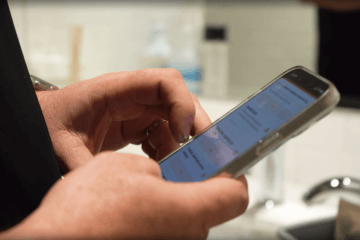This past year certainly threw a learning curve at professionals within the janitorial and facilities industries. We saw our teams work so hard to keep up with an ever-changing situation (rising to its Dixie Cup moment, if you will). Even as we move into 2021, with some of the same challenges alongside new realities, we’re finding time to reflect on five key lessons we’ve learned.
1. If you collect the data, then make sure you’re actually using it.
In January, we spoke with Mark Heller of Hygiene Performance Solutions about trends in healthcare. He pointed out that even among teams that prioritize collecting QC data, not everyone actually uses and shares it. He said:
“We’ve seen many examples of facilities that actually do audits, generate reports and data, and that data is never shared with the actual front-line workers, or there’s no evidence that that data was actually followed up on. That’s a tragic waste of that important information.”
If you’re doing the hard work of collecting quality control data, that’s just the first step. Next is to analyze the data for trends (something a program like OrangeQC is able to help with). After that, you’ll need to take what the data’s telling you and act on it.
2. Your QC process needs to be responsive to problems.
In our four-part Quality Control 101 series, we took a look at the building blocks of an essential quality control program. One of the most important points was around staying responsive to quality problems:
The important takeaway is that your quality control process needs a way to respond to problems. Without it, the only time you’ll know about issues is when a customer contacts you. You only get the customer’s grace so many times. Your process should be proactive in finding issues and resolving them — so fast that your customers don’t even notice most slip-ups. The more responsive you are, the happier your customers will be.
The importance of that responsiveness has been in the spotlight as clients and organizations relied on janitorial and facilities teams to respond quickly to public health threats.
3. Remember that cleaning isn’t happening in the background any longer.
When we spoke with Lance Witschen, a CIMS assessor and president of 1Class Consulting, on ISSA CIMS, he also shared his thoughts on how the COVID-19 pandemic is reshaping the industry:
“The cleaning service is no longer unseen,” he says. “Customers are paying more attention to what the cleaners are doing and how they’re doing it — whether or not they’ve really got the disinfection programs that they say they’ve got.”
We’ve seen teams around the world stepping up their communication efforts to be clear and transparent about the cleaning process.
Email campaigns, signage in buildings, more frequent phone calls, and other communication touchpoints are so important, and that’s never been more clear than coming out of 2020.
4. Everyone needs a quality plan.
Judy Gillies, president of The Surge Group, stressed the point that every cleaning team needs a quality plan:
“This pandemic has actually highlighted how important cleaning is,” says Judy. “We’ve never been so high on the pecking order . . . What this pandemic has done is that everything that should have been in place before, and isn’t quite there, is coming out.”
If you don’t already have a QC plan in place, now’s the time to get that squared away. A plan helps you communicate to everyone involved — your own team, your client or organization, and their stakeholders.
5. Remember to inspect your process, not just the result.
Process compliance audits are another piece of QC that the coronavirus pandemic revealed to be extremely important. As Mark Heller put it:
“What makes healthcare unique is that it’s not just about getting a great outcome, it’s about making sure the cleaning process is done in the right way.”
However, with COVID-19, every team became responsible for cleaning against the spread of disease. That meant every team needs to take a leaf out of healthcare housekeeping’s playbook and audit their process to ensure real effectiveness, as well as PPE compliance and safety for custodians.
As we head into 2021 with hopes for a brighter year, it’s worth holding onto the lessons learned during the pandemic experience. Janitorial and facilities teams have always been important defenders of public health, but it’s never been more clear than now.



